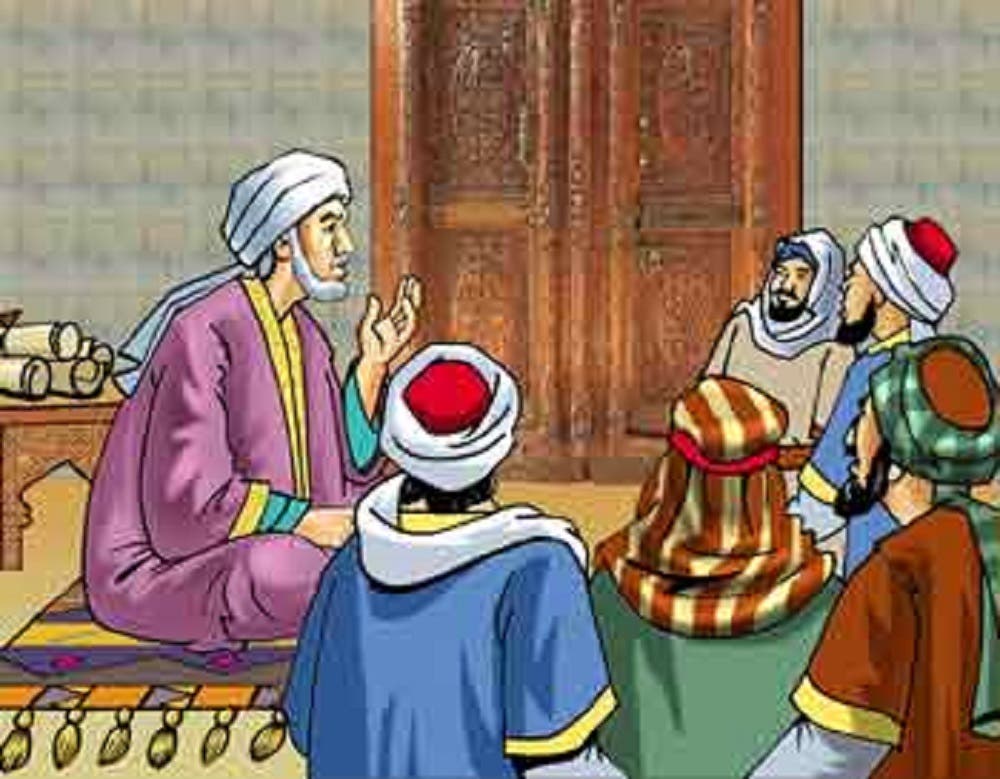Of his qualities
Ibn Sirin always dyed his hair with henna which was his distinctive mark. He was short and suffered from a slight deafness, but that did not prevent him from associating with people. He was known for his innocent humor and laughter.
In spite of his high spirits, he used to cry a lot at night in his house, and he used to sing poetry sometimes.
It is also known that he fasted a lot, he would fast one day and break the fast the next day. In addition, he was fascinated with sciences and scientists.
It has also been said that whenever he passed by the market, everyone would cheer. He would always help people which made him very respected among popular circles.
He fathered 30 children and among them only one, Abdullah survived, who paid his father's debt after his death, amounting to 30,000 dirhams.
His relationship with Anas bin Malik
His father’s relationship with Anas bin Malik was nothing compared to Ibn Sirin’s relationship with the man. He studied under him and traveled to Persia to learn from him. He was one of the writers of Malik and the two men have a strong relationship and a great affection for each other.
Before Anas died in Basra in 83 AH in the days of the rule of Al-Walid Ibn Abd al-Malik, he requested that Ibn Sirin should be the one leading the funeral prayers and washing him, but the problem was that Ibn Sirin was imprisoned at the time.
The prince gave a special amnesty for Ibn Sirin who got out of jail to execute the wishes of Anas and then returned to jail once again.
Interpreting dreams
His main book is A Concise Guide for the Interpretation of Dreams is considered an important reference until today. Nevertheless, the references of Ibn Sirin in the interpretation is still vague to this day and has not been reviewed enough through studies to shed light on his talents in this area. What’s clear though is that he interpreted dreams based on direct semantic meanings.
He combined the interpretation with reading the human mind. He used to directly interpret the dreams of people in the markets and councils.
He was bold in interpreting dreams even to the rulers, which caused him many troubles but he didn’t care.
Leading a simple life
Ibn Sirin did not seek to gain fortunes from his innate instincts and in interpreting dreams. In his lifetime, he suffered much poverty and had many clashes with the Umayyad caliphate because he refused their gifts. So they put him in jail.
He used to work in the market during the day and spend the night praying and studying. He worked in the textile business because of his thorough knowledge of clothes, colors and trade.
He had a great knowledge in this field, but apparently he was not much interested in money or trade.
Al Hajjaj
Ibn Sirin was a contemporary to al-Hajjaj ibn Yusuf al-Thaqafi (died 95 AH), and many of the princes and caliphs of Bani Umayya. Ibn Sirin refused to insult al-Hajjaj after his death and said that human sins are only judged by the Creator.
It was narrated that al-Hajjaj ibn Yusuf saw in his sleep a vision, as if two fairies had come to him, and he took one of them in and ignored the other. So he wrote to Abd al-Malik ibn Marwan about it and Abd al-Malik wrote to him, "Congratulations, Abu Muhammad for the good tidings.”
However, when the news reached Ibn Sirin he said: “He is wrong, these are two signs of strife. He will witness one and miss the other,” and indeed, he did.
Share This Post















